About us
We are a small organisation which uses the knowledge of Ghanaians to improve the situation in the country. We want to support their efforts to improve education and health standards.
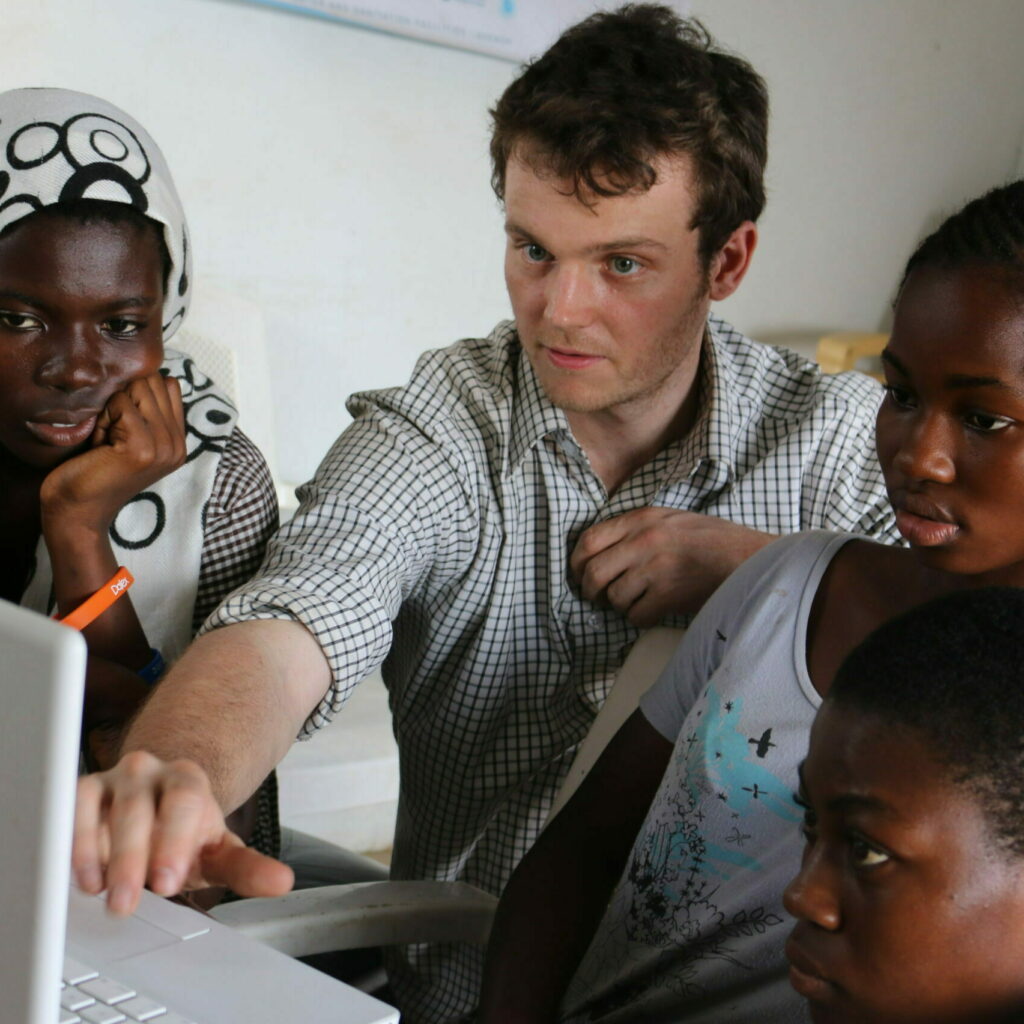
Manuel Daubenberger
Chairman and Finances
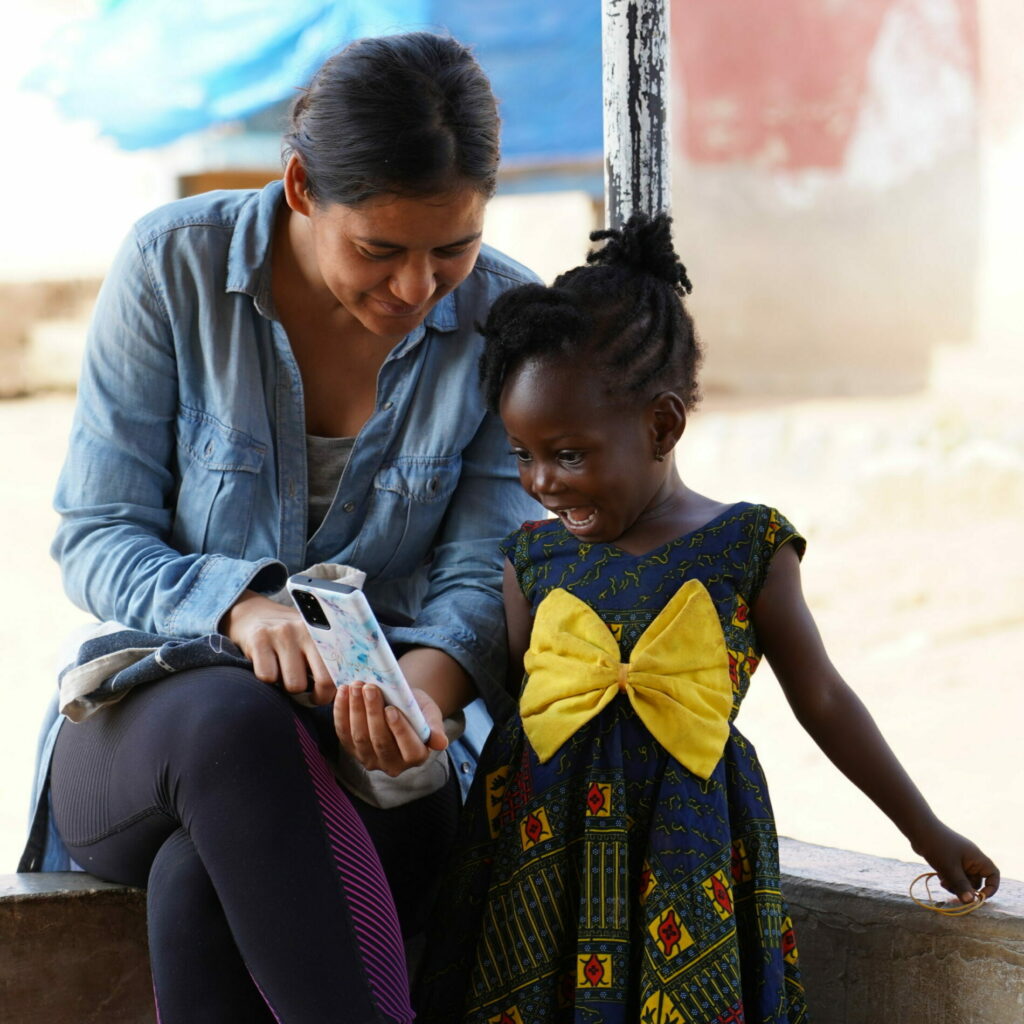
Munirah Razak
Public Relations
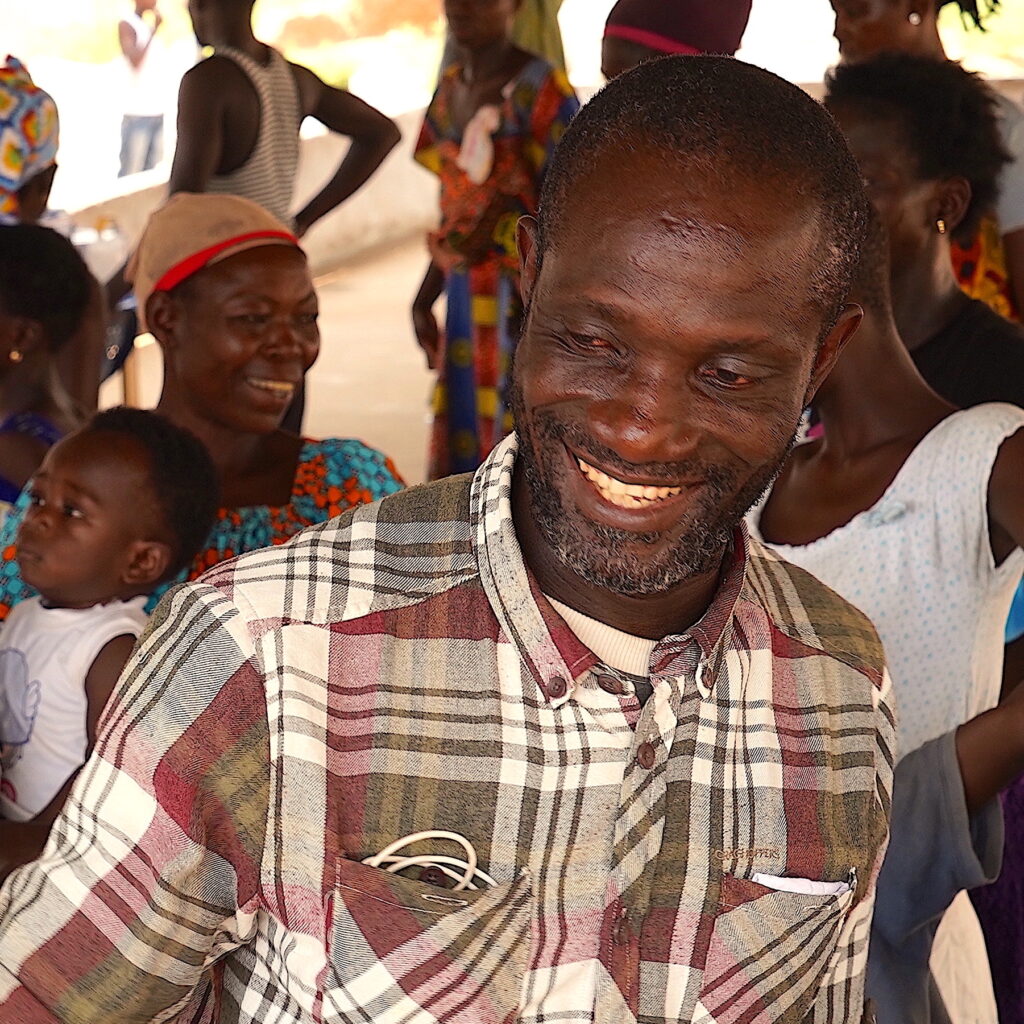
Marcus Bediako
Chairman RoG Ghana
The History of our Organisation
The (partially naive) start
When we founded the organisation in 2008, the majority of us was still studying political science. We had a strong drive to help, but also a lot of theoretical knowledge about what kind of mistakes are made in development cooperation. therefore wanted to be more transparent, more efficient and more creative than the large aid organizations. Added to this was the practical knowledge of the first club chairman, Steffen Mayer. As early as 2002, he began placing trainee teachers in rural areas of Ghana. There, in particular, there is a lack of suitable classrooms and well-trained teachers. This gave rise to the idea of building our own school on Lake Bosumtwi.
The village leased us a piece of land free of charge, supported architects, we supported construction plans and supported schools in the area with small donations in order to establish and safely prove the cooperation. Due to these first smaller projects, we were able to acquire more and more donations over time. In 2011 and 2012 we were part of the UN World Decade of Education for Sustainable Development.
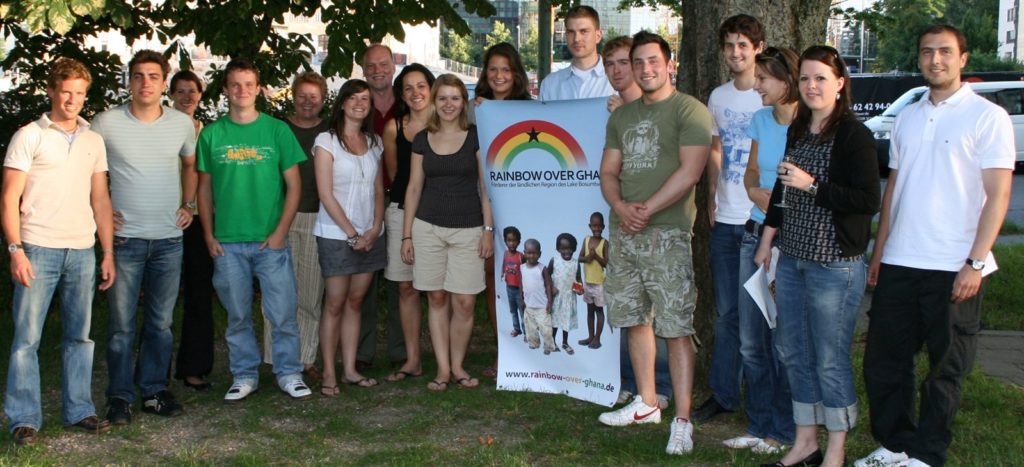
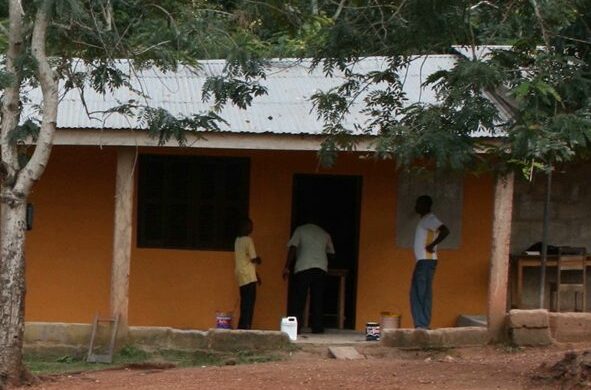
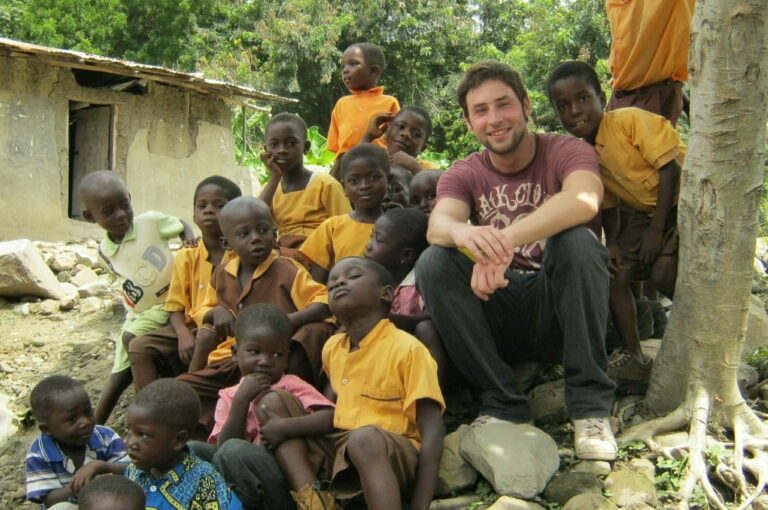
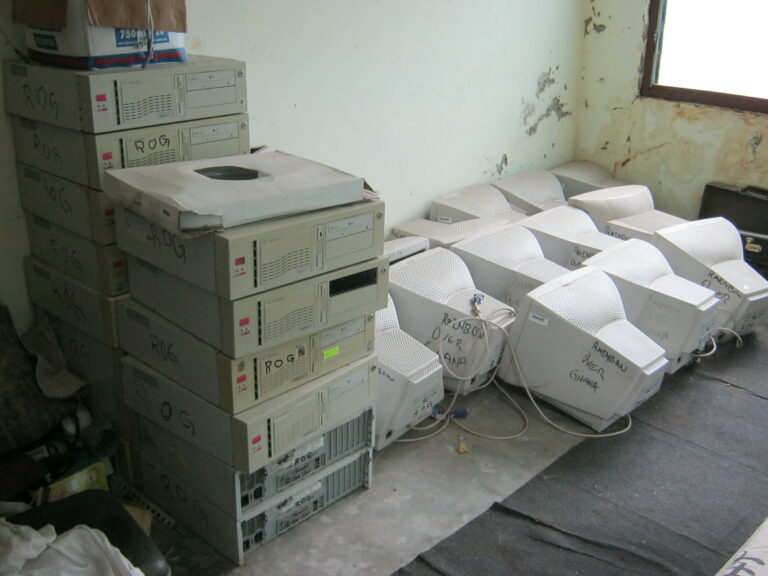
The (partially bitter) lessons
In the early years, however, we also had to learn that not everything worked on site the way we had thought it would. An example: We had sent fifty computers to Ghana that had been donated by a secondary school in Munich. The aim was to set up computer lessons at a rural school with which we had actually built up a very good relationship of trust. We also supported the school with a few thousand euros to build a computer room.
When the members Manuel and Florian visited the school the following year, not all the computers were on site and the planned computer room was not completed because the school had not kept to the agreements. A big disappointment and one of the reasons we had to part with our local project supervisor and end the school project at Lake Bosumtwi.
The (successful) new beginning
Since we had decided to do things differently than other organizations, we made these mistakes transparent and started afresh in 2012. Since then we have been working with two new project partners:
On the one hand, Marcus Attakakra Bediako, a Ghanaian who lived in Europe for many years and returned to Ghana to help his fellow countrymen. Marcus works entirely on a voluntary basis and is now the chairman of our Ghanaian NGO. He oversees our health projects.
And on the other hand, the German-Ghanaian couple Ingrid and Kwadjoe Fordjor, who have been running an education project in the village of Wurupong since 2009.
The new beginning was the best thing that could have happened to our association: we communicate much more frequently with our project partners, via e-mail, Whatsapp or Skype. We are regularly provided with photos and the proper documentation of the expenses makes the life of our treasurer much easier.
There were also repeated setbacks in the projects with Marcus and the Fordjor couple. Our attempt to set up a „community development project“ in a poor area of Accra, in which we offered children and young people tutoring, sports and theater education, failed. Unfortunately, there was envy and resentment, and the project was sabotaged. That’s why we had to stop it. After initial quick successes in Wuropong with better and better exam results, the results got worse again in the pandemic years.
The most important thing is that we communicate openly with all of our partners on site, always try out new projects with less money and draw conclusions from undesirable developments. It is also important to us to openly communicate successes and setbacks. We believe that only transparency and open communication enable successful development cooperation in which donors, project managers in Germany and Ghana and recipients meet at eye level.
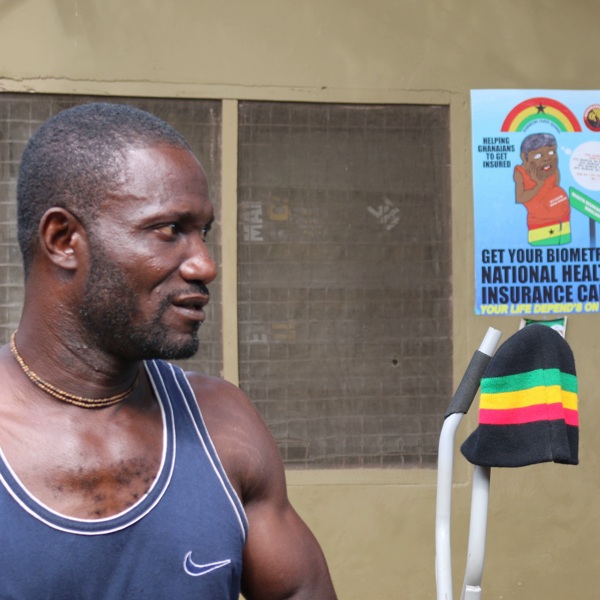
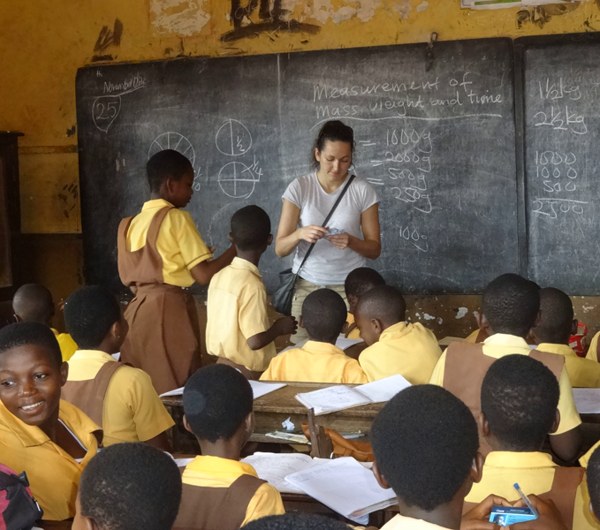
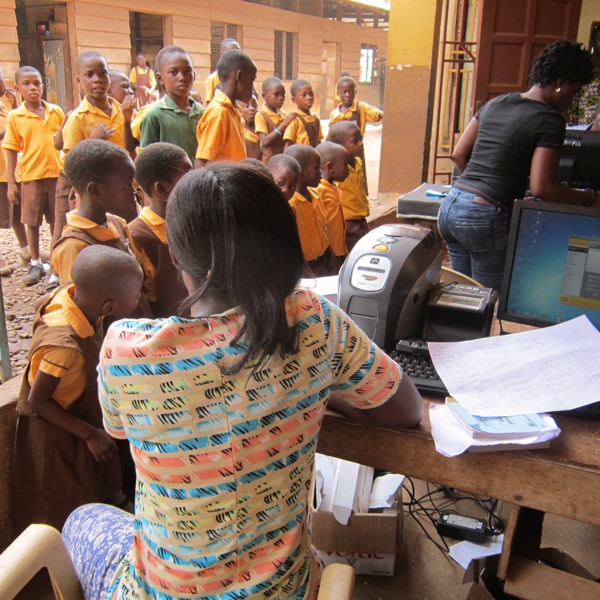
The (partially uncomfortable) challenges
One of the biggest challenges for aid organizations in developing countries is widespread corruption. Whether we want to register our organisation as a non-governmental organization or help children get health insurance, we are always asked for “little incentives”. If you don’t comply with this, obstacles will be put in your way. We try to play by these „unwritten rules“ as little as possible. We have to weigh things up regularly: If a couple of hundred children only have to wait longer for their health insurance card because we don’t want to pay lunch for a civil servant on principle, it’s disproportionate. We are fighting for a long-term change in consciousness and in the short term we have to accept unpleasant compromises.
